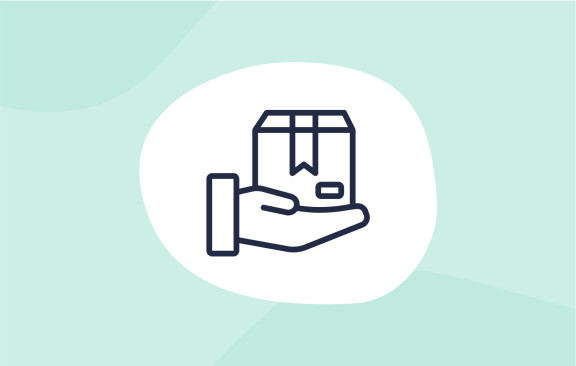What’s the most profitable product to sell online in 2024?
Beauty Products
- Why is it the most profitable? Beauty products are the most profitable product to sell online in 2024 because you can target both females and males. With the reopening of all the countries around the world from the COVID lockdowns in the past few years, people will look for ways to improve their appearance. Profit margins are high in this industry and many of the products, once opened, are non-refundable which means very low refund rates.
- How much is the average profit margin? The average profit margin of beauty products is around 55% with some reaching almost 80%.
- How big is the market for this product? Revenue in the beauty and personal care market is expected to reach $571 billion USD in 2024, according to statista.com.
“Margin” is the difference between the wholesale cost of an item and the price your store sells it for (which, in turn, pays for all your business’s expenses).
Essentially, your profit margin is like the emperor for your eCommerce store. Higher margins allow your business to be profitable. Smaller margins make you crash and burn.
Think about it like this: You can’t run an empire with a weak ruler.
But you can’t mark up your products without paying attention to what the market will bear. After all, if your prices are too high, you won’t make any sales!
So, how do you easily build your eCommerce empire? By putting a mark up on low cost products to give you high profit margins, of course!
It’s time to look at the 30 best low cost products with high profit margins you can start selling today. Let’s go!
30 Low Cost Products With High Profit Margins
Below are some of the best products to sell online to make money in 2024.
1. Jewelry
As far as unisex products go, jewelry is at the top. From watches to necklaces, bracelets, pins, earrings, and more, you’re guaranteed to find something for everyone. Wholesale product suppliers such as Fashion Jewelry For Everyone and Bedido Fashion Jewelry allows you to choose top-notch products at next-to-nothing prices.
Pros of Selling Jewelry
- Easy to sell
- They don't take up much inventory space
- There's always demand throughout the year
Cons of Selling Jewelry
- Highly competitive
- More work is required for shipping and packaging
Average Margin: $5-$35
2. TV Accessories
Wholesale product suppliers such as Kanto Living offer beautifully crafted TV wall mounts, tabletop stands, and earth-shattering audio systems at a price you simply cannot beat. TV accessories may be the next best thing, too (especially with how many new video game console systems are starting to emerge).
Pros of Selling TV Accessories
- Potential high profit margin
- Easy to specialize or niche down to certain car brand accessories
Cons of Selling TV Accessories
- Varied shapes and sizes for TV accessories may complicate packaging and shipping
- Cost price is high
Average Margin: $20-$50
3. Beauty Products
Is there anything better than pampering yourself? Why, yes! Indeed there is! You could help others pamper themselves by starting your own beauty eCommerce store! With a little bit of help from wholesalers like Volcanic Earth and Central Closeout, you’ll be running a beauty empire in no time.
Pros of Selling Beauty Products
- Easy to showcase product benefits
- Easy to package and ship
- Lots of sub-niches to enter
Cons of Selling Beauty Products
- Competition with big brands in the industry
Average Margin: $3-$25
4. DVDs
Despite contrary belief, the era of DVDs is not dead. Wholesale suppliers like Evertek continue to add to their ever changing product list and offer the latest (and greatest) tech you could find (did somebody say 4K DVDs?).
Pros of Selling DVDs
- Certain DVD genres can be profitable despite overall declining industry
- Lots of opportunity to buy second hand DVDs for cheap
- Easy to buy in bulk
Cons of Selling DVDs
- Overall declining industry
- Risk of not selling unwanted DVDs
Average Margin: $3-$10
5. Kids Toys
Ah… toys! Opening an eCommerce toy store may be your ticket to success. Wholesale suppliers such as And the Little Dog Laughed sell toys tailored to children, while suppliers like Park Flyers sell toys for adults (such as drones, electronic RC planes, etc.).
Pros of Selling Kids Toys
- Toys are timeless. As long as there are children in this world, there will be toys for them to play with
- Easy to buy in bulk
Cons of Selling Kids Toys
- The toy industry is dominated by big brand
- Varied toy sizes and weight may cause problems for shipping
Average Margin: $10-$30
6. Video Games
While you yourself may not be a hardcore gamer, there are plenty of people out there looking to get the best deal on video games (as well as gaming systems). Ingram Entertainment offers just that, at an extremely reasonable price. Be careful, though! You may have a bit of competition when starting out (you’ll have to match deals and prices from GameStop, RadioShack, and other gaming stores).
Pros of Selling Video Games
- There are always new games being produced and the game producer does the heavy lifting of marketing the product for you
- Easy to package and ship
Cons of Selling Video Games
- Need to differentiate yourself via other means, ie customer support, shipping and etc
- Popular games maybe hard to get, and less well known games are in risk of not selling
Average Margin: $5-$20
7. Women’s Boutique Apparel
While we can’t speak for all women, we can surely speak for quite a few when we say: there’s nothing a woman likes doing more than shopping for the next best outfit! By opening an eCommerce women’s boutique store, you’re able to supply what could be the next best look. Plus, you’re able to incorporate accessories (such as scarves, hats, and more)! Wholesale suppliers like Apparel Candy will surely help you become the next best boutique on the market.
Pros of Selling Boutique Apparel
- Universal appeal to women
- Potentially high margin if you can find the right supplier
Cons of Selling Boutique Apparel
- Need a strong brand to be successful
- Considerable upfront investment needed to stock different apparel sizes and color
Average Margin: $5-$30
8. Designer & Fashion Sunglasses
Who said eyewear has to be boring? Absolutely no one! With a wholesale supplier like Queen Bee of Beverly Hills, you’ll be able to create a kickass eCommerce store for fashionistas all over the world. The best part? Queen Bee offers designer sunglasses for both men and women!
Pros of Selling Fashion Sunglasses
- Potentially high margin if you can find the right supplier
- Good resale value for those that are in good condition
- Mature industry, lots of sunglasses suppliers available for new ecommerce entrepreneur
Cons of Selling Fashion Sunglasses
- More difficult to differentiate yourself as low barrier of entry also means there are high competition
Average Margin: $3-$20
9. Shoes
Is there such a thing as “too many shoes”? We don’t think so - and neither should you! Building an eCommerce store based solely (we totally meant that pun) around shoes could be the next best thing. With a bit of help from Anko Shoes, you’ll be able to supply shoes for children, teenagers, adults, and elders!
Pros of Selling Shoes
- Universal appeal to everyone
- Lots of sub-niches to branch into
- Good resale value for branded shoes that are in good condition
- Lots of references on the internet on how to become successful
Cons of Selling Shoes
- High competition
Average Margin: $10-$45
10. Halloween Costumes & Masks
Everybody knows that Halloween is all about the costumes. With some help from our wholesale supplier, DX Extreme, you’ll have the hottest costumes on the market! They also sell Halloween decorations to really get the party started!
Pros of Selling Halloween Costumes & Masks
- Easy to prepare for stocks and promotion as halloween is a yearly celebration
- Unsold halloween costumes can be sold the following year
Cons of Selling Halloween Costumes & Masks
- Have to keep stock for unsold goods
- Hard to differentiate yourself during the festive season for promotion
Average Margin: $10-$45
11. Kid’s Formal Wear
Have you ever looked around for children’s formal wear? It’s practically impossible to find a good suit (or formal dress) for a child. With Boulevard Apparel as your wholesale supplier, you’ll be able to keep your warehouse full of children’s formal wear (which will be a huge step for eCommerce stores, seeing as there really aren’t many formal shops tailored to children)!
Pros of SellingKid’s Formal Wears
- Competition is not as high as other apparel niche
- Great opportunity to upsell related accessories
- Fewer worries about sizing and fitting
Cons of Selling Kid’s Formal Wear
- Business volume may not be great (less occasion for kids to wear formal)
Average Margin: $10-$30
12. Sleepwear & Underwear
Gone are the days where sleepwear was just what you wore to, well, sleep in! Golden Eagle Home Textile offers a vast range of silk pajamas for you (and your customers) to lounge around in all day! A sleep-centered eCommerce store would be incredibly fun to have (think of all the cozy pajamas and slippers you’d get to show off)!
Pros of Selling Sleepwear & Underwear
- Can be a high margin business with the right supplier
- High profit potential for well-designed sleepwear with a strong brand
- Easy to store and package
Cons of Selling Sleepwear & Underwear
- Sizing and fitting can be a hassle to work with. Would need to source multiple sizes to cater to different body types
Average Margin: $5-$25
13. Pet Care Supplies
Nearly everyone has an animal in their household (or knows someone that does). If you were to open a dropship pet supplies store around pet care products, there’s no doubt in our mind that you wouldn’t be an instant success (with the right amount of promotion, of course)! Wholesale suppliers such as Pet Edge and Inspirer Pet will supply you with the materials you need to have a successful pet-tailored store.
Pros of Selling Pet Care Supplies
- Lots of sub-niches to branch into
- Great recurring business opprtunity
- Great opportunities for upsell
Cons of Selling Pet Care Supplies
- Shipping can get expensive for large items
Average Margin: $5-$50
14. Candles
Candles are pretty much the universal “I’m sorry, but I’m not sure what else to get you for Christmas” gift. However, they could be so much more! Opening an eCommerce store that sells candles (as well as candle holders) could open so many doors for you! Not to mention, everyone loves candles. Gem Candles offers a ton of amazing scented candles for you to try out - for free before you buy!
Pros of Selling Candles
- Relative easy to source
- Popular gift choice
- Predictable recurring business (Various service businesses and places have light candles daily)
Cons of Selling Candles
- Easily damaged during shipping
- Chances of melting under hot weather during transport or storage (lack of air conditioning)
Average Margin: $5-$15
15. Outdoor Furniture & Accessories
There’s nothing quite like spending time with friends and family outdoors. In fact, it was proven that people who spend more time outdoors are happier! By opening an eCommerce store focused on outdoor furniture or even home decor dropshipping, you’ll rest easier knowing you’re helping someone else’s mental health! Our wholesale supplier, W. Unlimited, can help you startup!
Pros of Selling Outdoor Furniture & Accessories
- Potential for high-profit margin
- More opportunities to upsell related furniture
Cons of Selling Outdoor Furniture & Accessories
- Large, varied sizes furniture makes shipping more complicated
- Takes longer to sell, harder to move furniture
Average Margin: $30-$150
16. Phone Accessories
In this day and age, it’s rare to see someone who doesn’t have a cell phone. That alone makes a cell phone accessory eCommerce store a gold mine. With a wholesaler like Reiko Wireless Inc., you’ll be able to give the consumers what they want: a unique way to showcase their phones!
Pros of Selling Phone Accessories
- Lots of opportunities to source unique, creative cell phone accessories
- New phones are being released every year, so there's always new demand for accessories for these phones
- Phone Accessories are small and compact, so they take less storage space and shipping will be less difficult
Cons of Selling Phone Accessories
- Low barrier of entry for competition
Average Margin: $3-$15
17. Board Games
Board games can either make or break a good party! Starting up an eCommerce store for board gamers may be the best way to ensure everyone has a good time. After all, no one likes a boring game! Aquarius Entertainment Merchandising Inc. can help you find all the right board games to start out with.
Pros of Selling Board Games
- Easy to buy for cheap and resell for much higher price (High ROI)
- Board games have strong sentimental value, and some customers are willing to pay a high price for it
- Doesn't require a lot of capital to start
Cons of Selling Board Games
- Needs effort to find the right board game in good condition
- Some boardgames come with fragile pieces, which can affect shipping and customer review
Average Margin: $20-$60
18. Books
When thinking about an eCommerce bookstore, we see so much potential for success. Not only will you be able to offer actual books, you can offer online books too! Finding a wholesale supplier for books may not be the easiest thing to do (as nearly everything is online now), but using someone like Gardner’s Used Books & Comics is a sure-fire way to get started.
Pros of Selling Books
- Straight forward and easy to sell
- Easy to buy books in bulk for cheap
Cons of Selling Books
- They are heavy and take a lot of space
Average Margin: $5-$15
19. Legos
Legos are one of the most popular toys sold daily. It’s almost baffling to think that there aren’t many eCommerce stores completely based around legos! No worries, though! That leaves plenty of room for you to pick up the slack! With a wholesaler like DC Wholesales, you’ll be able to rise to the top of Lego Heaven city!
Pros of Selling Legos
- Well known brand with a cult following
- Easy to buy in bulk for cheap
- Certain lego sets and collection can fetch for high price
Cons of Selling Legos
- Collector lego sets are hard to come by
- Easy to damage the legos if not being taken care of
Average Margin: $5-$30
20. Active Wear
Working out has become a huge part in a lot of people’s everyday lives. How awesome would it be to be able to supply active wear clothes to fitness-savvy people? With a wholesaler like S&S Activewear, you’ll run, sprint, and possibly even lunge, to the top of the fitness-apparel community!
Pros of Selling Active Wear
- Easy to find a sub-niche as you're already targeting a specific group of people
- As with most apparel, selling activewear can be a high margin business with the right supplier
- High profit potential for well designed active with a strong brand
Cons of Selling Active Wear
- Sizing and fitting can be a hassle to work with. Need to source multiple sizes to cater for different body types
- Highly competitive as activewear has gained popularity in the last few years
Average Margin: $5-$15
21. Men’s Bow Ties
Men’s bow ties have become a lot more popular in the past few years. Perhaps it’s because bowties are classy and literally never go out of style! If you’re interested in men’s bowties, pair up with one of the best bow tie wholesalers, Dot, to get started on this exciting eCommerce store!
Pros of Selling Men’s Bow Ties
- Small, light weight and easy to ship
- Simple product to sell
- Cheap to source
Cons of Selling Men’s Bow Ties
- need to stock different sizes and colors, this will need up front investment if supplier requires minimum purchase.
Average Margin: $1-$5
22. Wooden Watches
We’re not sure why wooden watches aren’t the go-to watch, but one thing’s for sure: they’re stylish, easy to market, and will ensure individuality! Think about it, have you ever seen anyone wear a wooden watch in real life? Pair up with wholesaler Shenzhen Ounier Watch Co Ltd. and you’ll be making sales like no other!
Pros of Selling Wooden Watches
- Small and easy to ship
- Well designed watches can be sourced for cheap
- Don't have to worry about size and fitting
Cons of Selling Wooden Watches
- Designs can be easily copied
- Can be difficult to sell at a premium unless you build a strong brand for it.
Average Margin: $15-$30
23. Leggings
Leggings are cozy pajamas that you can wear virtually anywhere (without being judged). Because they’re so popular, it only makes sense to create an eCommerce store with leggings front and center! Private Island Party has nearly every color you’d ever want (and some colors you’d never think of) available for you to start this journey!
Pros of Selling Leggings
- Light weight and really easy to ship and package
- Cheap to source in wholesale
Cons of Selling Leggings
- Need to stock different sizes and colors, this will need up front investment if supplier requires a minimum purchase
Average Margin: $5-$15
24. E-Cigarettes
With e-cigarettes being as popular as they are right now, you’ll be surprised to know that not many eCommerce store owners sell them! Not only are they a better alternative to smoking, they’re a huge money-making machine. Team up with E-Cigarette Direct to start this thriving business!
Pros of Selling E-Cigarettes
- Gained massive popularity in recent years as alternative to cigarette
- Great opportunity for recurring business
Cons of Selling E-Cigarettes
- Some countries introduced regulations for selling E-cigarette
Average Margin: $1-$15
25. Coconut Oil
Coconut oil has become one of the staple items to use while cooking. Why? It’s a lot healthier for you than nearly any other oil! Starting an eCommerce business with a wholesaler like Nutrakem will help you build a brand you’ll feel good getting behind!
Pros of Selling Coconut Oil
- Long shelf life
- Easy to store
- Coconut oil benefits are well known, less marketing needed for actual product
Cons of Selling Coconut Oil
- Coconut oil stored in glass jar are fragile
- More marketing expenditure to differentiate yourself from competition
Average Margin: $3-$15
26. Matcha Powder
Matcha powder has loads of health benefits, and is often referred to as the antioxidant powerhouse! Our wholesaler, Kiss Me Organics, can help you find the best matcha powder (and some pretty delicious matcha-infused teas, too)!
Pros of Selling Matcha Powder
- Popular product with constant demand
- Easy to package and ship
- Relatively low cost to start up
Cons of Selling Matcha Powder
- Moderate shelf life (1 year or less)
- Needs air-tight and light-tight packaging
- Delicate and sensitive to heat
Average Margin: $5-$15
27. Bluetooth Speaker
Bluetooth speakers are used for gaming, television, home-theatres, and even working out. Opening a bluetooth eCommerce store with our wholesaler Tiko International, will bring you nothing but success for years to come!
Pros of Selling Bluetooth Speaker
- Potential for high-profit margin
- Potential to expand into other verticals within the electronics niche
Cons of Selling Bluetooth Speaker
- Prone to breakage during shipping
- High competition
Average Margin: $15-$35
28. Socks
Remember opening Christmas gifts and getting socks as a child? You told everybody that you hated them, but you were secretly so happy that someone thought to get you a few pairs. Socks are one of the most important items that you wear daily (if you ask us)! And they don’t have to be boring! Pair up with Little People & Me to find some of the coolest socks around!
Pros of Selling Socks
- Opprtunity to sell unique, cool socks at a higher price
- Less worries on fitting and sizes
Cons of Selling Socks
- Low price point
- Low barrier of entry means high competition
Average Margin: $3-$10
29. Printer Ink
Running out of printer ink is a nightmare, especially if you work in a huge corporate office and need to print important documents! By opening an eCommerce store for printer ink with Re-Inks, you’ll be able to sell ink to businesses to ensure they never run out again!
Pros of Selling Printer Ink
- Low upfront investment
- Does not require big inventory space and has long shelf life
- Great opportunity to serve local businesses
Cons of Selling Printer Ink
- Ink container prone to leakage
- Difficult to find good supplier or manufacturer
Average Margin: $10-$15
30. Designer Lingerie
If you want to sell something a bit more intimate, perhaps designer lingerie is the way to go! Pair up with The Love Shop, pick out a few awesome lingerie sets, and promote the heck out of it! Everyone wants to look sexy, why not help them out?
Pros of Selling Designer Lingerie
- High profit potential for well designed lingerie with a strong brand
- Easy to store and package
- Small, easy to ship
Cons of Selling Designer Lingerie
- Tough competition with well known brands
- Product might generate large volume of inquiries.
Average Margin: $5-$25
What makes a good product to sell online?
When you look at the most successful online sellers - you know the ones who share their six- and seven-figure incomes on Youtube and Instagram - you might think that they’re just lucky. They simply chose the right product at right time and - voila! - they’re making big money.
Sure, sometimes luck comes into it. But the best online sellers know what to look for in a product and they put in the research to validate their ideas.
There are 7 factors to consider when choosing a product to sell online. Tick all these boxes and you can be confident you’re on to a winner.
1. Profitability

You want to make money online? Then you have to find a profitable product. It’s not as simple as selling your product for more than you paid for it. You also have to take into account seller fees, packaging and shipping costs, your marketing budget, and the time you invest in all of these tasks, not to mention the tax you’ll pay on your income.
Successful sellers know how to identify profitable products by understanding how much it will cost them to sell their product and then how to calculate their profit margins based on these numbers.
You can use SaleHoo Labs to see the average price that specific reseller products are selling for on popular online marketplaces like eBay and Amazon. Otherwise, you can do your own market research online.
Pro tip: Negotiating with suppliers is a great way to increase your profitability. Try and make the best deal with your supplier so that you can make higher profits.
2. Competition
Thinking about jumping on that hot retail trend to make a bunch of fast cash online? Think again. If a product’s already trending then it’s probably going to be highly competitive - meaning lots of other sellers are already selling it.
The more saturated a market is, the harder it is to sell in it, especially if you’re new to eCommerce.
You want to choose a product that has low competition. That means you will get a larger slice of the market.
The other option is to find a trending product or niche and sell something similar, but different or better. That way, you get the best of both worlds: A hot market and less direct competition.
Before you hop on an e-commerce site or create your own website, make sure to do your due diligence before investing in products.
Again, you can use SaleHoo Labs to see how competitive products are, or you can conduct your own market research by browsing popular online marketplaces.
3. Price point

Profitability is important, but it’s not everything. For example, if you managed to source a special toothbrush for $0.10 per item, and you were selling it for $1.10, that’s a good profit margin.
However, you’d have to sell a lot of toothbrushes to make a good income.
That’s why your price point is important. The retail price sweet spot is between $15 and $200. Anything less than $15 and you might be struggling to make enough money. Anything over $200 is harder to sell (buyers have to think more about expensive purchases).
I’d recommend going somewhere in the middle - around the $50 mark sounds about perfect. That gives you plenty of room to absorb all of the additional expenses you have to cover, especially if you can source your product for a good price. And buyers don’t have to think too much about handing over their money.
4. Size & weight
Thinking about selling surfboards or table tennis tables? You might want to consider the cost and logistics of getting those items to your customers, especially if your supplier is another country like China, for instance.
You’re best to choose products that are small and light. The rule of thumb is that the product should be small enough to fit in a shoe box and weigh less than 4.4lbs (2kg). This makes it perfect for dropshipping from a country like China using a delivery service like ePacket.
While you can sell large, heavy items, you’re more likely to run into logistical issues and you want to keep your processes as simple as possible.
5. Durability

The other thing to consider is the durability of your product. Do you really want to run the risk of shipping handmade clay pots from Bangladesh to the United States? What about remote control cars that have lots of complex components?
While a case can be made for both of those product ideas, it seems like unnecessary risk. The pots could break in transit and all it takes is for one component in the remote control car to be faulty, and you’ve got a disappointed customer.
When choosing a product to sell online, I recommend going with something that’s durable and has few moving parts.
It reduces the risk of something going wrong.
6. Sellability
By sellability I mean, will the product sell? It’s hard to know for sure. But you need to have some idea of whether or not you can move your product because, well, that’s the whole point of selling online.
SaleHoo Labs shows the sell rate for thousands of different products, which can help to give you confidence in your product.
You can also pay attention to other sellers in your market to see if they’re have sales success.
7. Seasonality
Some products are seasonal. Halloween costumes. Christmas decorations. Inflatable pool toys. They all tend to sell at particular times of the year.
While this can be a good thing, it’s best to avoid seasonal products, especially if they’re the only product you’re selling and you’re new to eCommerce.
Seasonal products can be a great addition to an established eCommerce store and, with clever marketing, you can make enough money during one season to last a year.
But you ideally want to choose a product that you can sell all year round, providing you with consistent income.
Conclusion
Now that you’re aware of the top 30 low-cost products with the highest profit margins, you should be able to open a successful eCommerce store in no time!
If you’ve found this article helpful, be sure to share it with your friends! As always, thanks for counting on SaleHoo to provide you with the tips and tricks needed to create your dream store.
FAQs
Start by identifying your interests, passions, and areas of expertise – this will make your journey more enjoyable. Then, explore various online marketplaces like Amazon, eBay, or SaleHoo Directory to discover trending and in-demand products. Use tools like SaleHoo Market Insights or product research tools to spot emerging trends and niches. Don't forget to consider your target audience and their needs. If you're into crafts, you can create unique handmade items, and if you're tech-savvy, you might consider electronics or gadgets. Keep an eye on customer reviews and feedback to understand what's working in the market. And remember, finding the right product is just the start; building a strong brand and providing excellent customer service are key to online selling success.
- Explore what you’re interested in: Start by thinking about what genuinely interests you. Passion can be a powerful driver, so choose products that resonate with you.
- Do market research: Dive into online marketplaces like Amazon, eBay, and SaleHoo Directory to uncover trending and profitable products. Look at bestsellers, customer reviews, and categories with high demand.
- Select the right niche: Consider specializing in a niche market where you can stand out. It could be anything from eco-friendly products to pet accessories – find your unique angle.
- Do keyword research: Use tools like Google Keyword Planner or specialized eCommerce tools to identify high-ranking keywords related to your niche. This can guide your product selection and marketing strategy.
- Vet suppliers: Research and vet potential suppliers or wholesalers carefully. Look for reliability, quality, and competitive pricing. Platforms like SaleHoo Directory can help you find trustworthy suppliers.
- Order samples: Before committing to large quantities, order product samples to assess quality. Ensure they meet your standards and align with your brand.
Remember, sourcing profitable products is just the beginning; success in eCommerce also depends on effective marketing, customer service, and ongoing optimization of your online store. So, get ready to source, sell, and shine!
Selling high-profit products online can be like reaching for the stars, but it's essential to be aware of the potential risks. While the rewards can be substantial, competition can be fierce, attracting more attention from both customers and competitors. This can lead to price wars and pressure on profit margins. Additionally, high-profit products may require more significant investments upfront, posing financial risks. You'll also need to navigate the challenges of managing inventory effectively and ensuring consistent product quality. However, with careful planning, market research, and a solid business strategy, these risks can be mitigated, and the rewards can be well worth the effort. So, embrace the adventure, but tread with caution and savvy!
Seasonal products can indeed offer excellent profitability for online sellers, but it's essential to be aware of the unique risks they bring. Selling seasonal items, like holiday decorations or summer gear, can provide a significant income boost during specific times of the year. However, these products may have limited demand outside their peak seasons, leading to inventory challenges and cash flow fluctuations. It's crucial to plan inventory carefully and consider storage costs. Additionally, the competitive landscape can be intense during peak seasons, with many sellers vying for customers' attention. Still, with smart planning, marketing, and diversifying your product lineup to include both seasonal and evergreen items, you can make the most of the profitable opportunities that seasonal products offer.










3 Comments